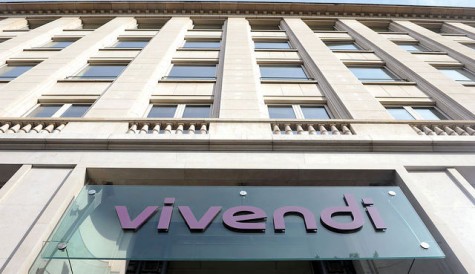Liberty Global: the bellwether for managed service outsourcing

Source: AdobeStock
The groundbreaking deal that saw Liberty Global outsource the future development of its entertainment (and connectivity) technology stack to Infosys last year was a bellwether for the entire television market, and we are going to see accelerated adoption of fully managed service models in the next few years, according to Michael Lantz, CEO at Accedo.
His company has just launched an OTT Video Managed Services offering that would see the video solutions provider, which is best known for its UX/CX capabilities, take complete ownership of operations and roadmap development for streaming services, managing the entire end-to-end ecosystem including technology, functionality, people and processes.

Michael Lantz
Lantz says his company has been readying itself for a fully managed service offering for ten years, but now is the perfect moment to press the trigger – with the change of strategy at Liberty Global illustrating how much TV tech-think is evolving. Liberty Global epitomised self-development and strong investment in platform technology, and prided itself on producing its own, world-leading technology, the Accedo CEO observes. “They saw their own tech development as a competitive edge, but have allowed someone to take that over.
“Every large industry has gone this way: innovating with point solutions initially and, over time, finding vendors who can take bigger pieces [of the required technology stack] and then outsourcing roles when it makes strategic sense,” Lantz explains. “Until now the major media companies have felt it was strategically important to build up their own technical competence and own the IP for technology components they use, harnessing large budgets for professional services and then maintaining those systems,” he continues.
“That is expensive, but the early success of companies like the BBC [with iPlayer] and Netflix, where they created everything themselves, even down to the minor details of the platform, meant others took the same approach. Now, around the world, we see many platforms that are custom built and extremely expensive to maintain.”
Major rethink
While the cost of capital was low, this scenario was manageable, but Lantz reckons the new financial landscape, the increasing shareholder pressure for profits from streaming services, and a decline in the advertising market have created the conditions for a major rethink. “Many media companies have ended up with expensive OTT services that are not growing fast enough and everyone is starting to focus on the value they really bring to the market and whether that requires that they own a technology platform in order to present content in an attractive way.”
Lantz reminds us that broadcasters were not focused on being technology platforms before the streaming revolution, and he believes it no longer makes sense to have platform/distribution technology ownership as an ambition. “Only the really big media companies can justify investment in their own technology stack now,” he argues. “Everyone else will move over to using a vendor-based ecosystem, whether that is off-the-shelf solutions or managed services.”
He suggests that even the biggest media companies, if directed from board level to dramatically reduce technology costs, would conclude that a fully managed service model was the way to achieve savings while staying competitive.
For media companies that decide against technology ownership for their streaming services, including when developing a next-generation platform, the next question is how much control they want of the solutions they no longer own. SaaS would suit a media owner that does not need control, says Lantz, but if they do want control, they have to find a vendor who can become what he calls a great ‘efficiency partner’ and negotiate a business model that incentivises the vendor to help meet strategic goals, like improving the quality of the service, driving churn down and increasing revenues.
“The media company still controls the objectives, but it is more of a partnership than when you have a point solution relationship with a vendor,” he summarises.
After deep industry engagements about its fully managed service plans, much of it with existing customers, Lantz reports: “Not everyone is ready for this right now, but it was clear there is an opportunity to offer a cost-efficient solution to the market.
“What sets us apart is the fact that we are specialised in television, and we are very well placed to select efficient and attractive components that are right-sized for the customer requirements. We come with a UX and CX heritage that means we understand what consumers want.”
Long-term mega-trend
Lantz believes customers of Accedo’s OTT fully managed service could include the larger publicly funded and commercial broadcasters outside of the largest markets, and mid-sized media companies in the larger markets. He accepts that they will not be competing to build and manage streaming services for the giants of the industry.
He predicts that the migration from in-house development to fully managed services for OTT/streaming platforms will become an industry mega-trend, but one that plays out over many years. “As the managed services provider, we have to take over existing technology and then migrate a platform to a new technology stack. That is a multi-year process for each engagement.”
Accedo offers a proven technology stack that includes Accedo front-end products and a back-office middleware to help integration with a wide ecosystem of vendor partners. The company already has strong experience piecing together full solution sets for customers, using something approaching a managed service but without the end-to-end responsibility. Delivery of fully managed services is considered a natural evolution.
With the fully managed service option, Accedo will take responsibility for success, working on a case-by-case basis to determine the requirements and therefore the vendor partners needed. Managed service customers do not have to use an Accedo UX, although Lantz considers it unlikely they would engage with his company if they did not want it. “The UX is a competitive edge for us,” he points out.
Accedo is ready to take on engineering and operations teams, as required, in a transition to a fully managed service. The company’s solution is being made available globally.



